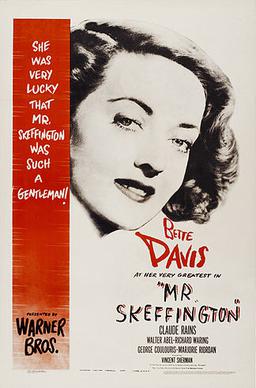
Mr. Skeffington is a 1944 American drama film directed by Vincent Sherman, based on the 1940 novel of the same name by Elizabeth von Arnim.

The Borrowers is a children's fantasy novel by the English author Mary Norton, published by Dent in 1952. It features a family of tiny people who live secretly in the walls and floors of an English house and "borrow" from the big people in order to survive. The Borrowers also refers to the series of five novels including The Borrowers and four sequels that feature the same family after they leave "their" house.

Humberto Sousa Medeiros was a Portuguese-American clergyman of the Roman Catholic Church. He served as Archbishop of Boston from 1970 until his death in 1983, and was created a cardinal in 1973. An ecclesiastical conservative, Cardinal Medeiros was considered a champion of the immigrant worker, the poor and minorities.

Pasión de Gavilanes is a Colombian telenovela written by Julio Jiménez. It is produced by RTI Colombia in conjunction with the Telemundo network and with the participation of Caracol TV company. The telenovela is based on the 1994 telenovela Las aguas mansas, also written by Jiménez and produced by RTI. It premiered on Telemundo on 21 October 2003, while in Colombia it premiered on Caracol TV.

Vito Corleone is a fictional character in Mario Puzo's 1969 novel The Godfather and in the first two of Francis Ford Coppola's film trilogy. Vito is originally portrayed by Marlon Brando in the 1972 film The Godfather, and later by Oreste Baldini as a boy and by Robert De Niro as a young man in The Godfather Part II (1974). He is an orphaned Sicilian immigrant who builds a Mafia empire.

Breaker! Breaker! is a 1977 American action film directed by Don Hulette and starring Chuck Norris in his first lead role. The co-stars include George Murdock, Don Gentry and Michael Augenstein.

The Housekeeper and the Professor is a novel by Yōko Ogawa set in modern-day Japan. It was published in Japan in August 2003, by Shinchosha. In 2009, the English translation by Stephen Snyder was published.
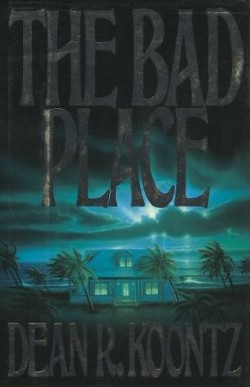
The Bad Place is a horror novel by American writer Dean Koontz, released in 1990. It includes elements of horror, suspense, and mystery, and is presented partially as a twist on the private eye drama.

The Door is a novel by Hungarian writer Magda Szabó. The Door was originally published in Hungary in 1987, and translated into English in 1995 by Stefan Draughon for American publication, and again in 2005 by Len Rix for British publication. Rix's translation won the 2006 Oxford-Weidenfeld Translation Prize, and was short-listed for the Independent Foreign Fiction Prize. Rix's translation was republished in 2015 by New York Review Books Classics.

Barbarosa is a 1982 American Western film starring Willie Nelson and Gary Busey. It is about a young cowboy on the run from the law who partners with a famous bandido and learns about life from him. "One of the best overlooked westerns of the last 20 years" according to reviewer LG Writer, and featured on an episode of the television show Siskel & Ebert dedicated to uncovering worthy sleepers, it is "a tale of betrayal, vendetta, honor, and dignity". Barbarosa was the first American-made film by noted Australian director Fred Schepisi.

Los ricos también lloran is a popular telenovela produced in Mexico in 1979, starring Verónica Castro, Rogelio Guerra and Rocío Banquells. Castro also sang the theme Aprendí a Llorar, a song written by Lolita de la Colina. The telenovela was produced by Valentín Pimstein and Carlos Romero, it was directed by Rafael Banquells. The story was written by Inés Rodena and adapted by Valeria Philips.

Mistress Pat (1935) is a novel written by Canadian author L. M. Montgomery, noted for her Anne of Green Gables series. Mistress Pat is the sequel to Pat of Silver Bush, and describes Patricia Gardiner's life in her twenties and early thirties, during which she remains unmarried and takes care of her beloved home, Silver Bush, on Prince Edward Island.
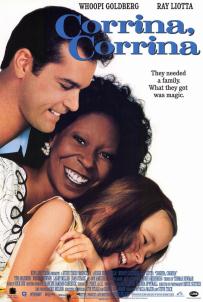
Corrina, Corrina is a 1994 American comedy-drama film set in the Los Angeles suburbs of the 1950s about a widower who hires a housekeeper/nanny to care for his daughter. It was written and directed by Jessie Nelson, in her feature film directing debut. It was the final film in which Don Ameche starred; he died shortly after filming was completed.

Ford County is a collection of novellas by John Grisham. His first collection of stories, it was published by Doubleday in the United States in 2009.
Por mis pistolas is a 1968 Mexican comedy western film directed by Miguel M. Delgado and starring Cantinflas and Isela Vega. Vega's film career took off after this film. The film is a satire to the Spaghetti Western genre in vogue in the late 1960s.
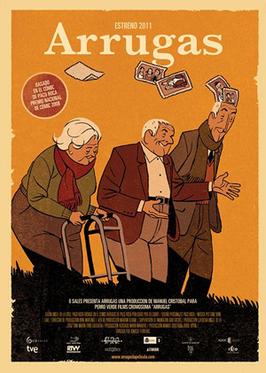
Wrinkles is a 2011 Spanish adult animated comedy-drama film directed by Ignacio Ferreras, based on the comic book with the same title by Paco Roca. The story is set in a retirement home and revolves around the friendship between two elderly men, one of them in the early stages of Alzheimer's disease.

Oscar Cásares is an American writer and associate professor of creative writing. He is the author of Brownsville: Stories, Amigoland, and Where We Come From. Cásares teaches at the University of Texas at Austin where he is director of the Creative Writing Program.
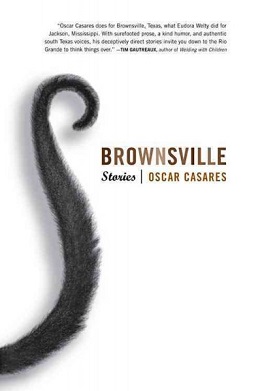
Brownsville: Stories is a short story collection by American author Oscar Casares. It was published in 2003 by Back Bay Books and was his first book. The title is taken from Casares’ hometown of Brownsville, Texas, where the loosely related stories in the book are set. Brownsville has been honored with several awards and, because of its literary style and structure, has earned comparisons to James Joyce's Dubliners.

The University of Texas at Brownsville was an educational institution located in Brownsville, Texas. The university was on the land once occupied by Fort Brown. It was a member of the University of Texas System. The institution was formed from a 1991 partnership between the two-year Texas Southmost College and University of Texas-Pan American at Brownsville. The partnership ended in 2011 as UTB became a standalone University of Texas institution, and Texas Southmost College returned to being an independent community college. UTB itself offered baccalaureate and graduate degrees in liberal arts, sciences, education, business, and professional programs.

















